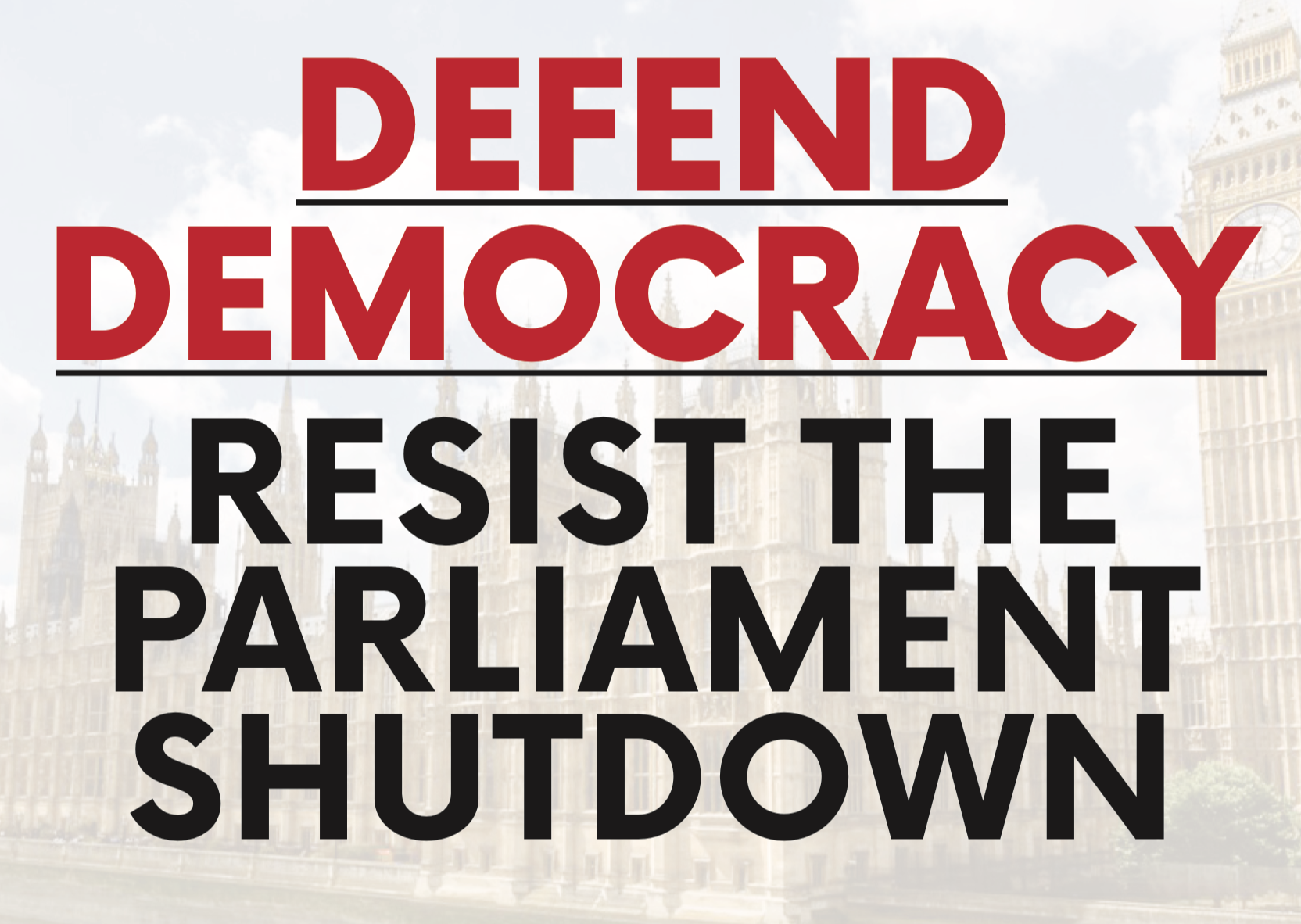The #StopTheCoup protest displays all the techniques of the new activism - a networked surge from below
The #StopTheCoup stage, just outside 10 Downing Street, today @another_europe
A few weeks ago we ran a blog on the innovative activist and street-protest techniques used by the Hong Kong protestors against their Chinese-backed authorities. As ever, we wondered when new civic practices in one part of the world will be avidly taken up by others. On our own doorstep, we didn’t have to wait long…
Boris Johnson’s move to prorogue (or suspend) the UK parliament for a total of 5 weeks during this crucial period up to the Brexit deadline on 31st October - using their executive access to the British monarch to speedily approve this, even unbeknownst to many of their own Cabinet members - has ignited spontaneous protest across the country.
Today (Sat 31st August) there are public demonstrations right across the UK… but we want to try to sketch out, as it has arisen, the way that “bodies on the street” (in the words of left journalist and activist Paul Mason) have been mobilised by the swarming powers of social media.
The aforementioned Mason, at 12.55pm on the day the prorogation was secured, put out this tweet,
A/UK turned up about 6.30, and found thousands of people jostling with the journalists in the media park at College Green, conducting Occupy style “human microphone” speeches (where, in the absence of amplification, the crowd repeats what the speaker says). Then a few voices went round the crowd, urging them to “walk to Downing Street”, the movement of which immediately blocked the roads as the crowds progressed.
The event generated the opportunity for a range of charismatic mediators to send out short meme-speeches to their community (Owen Jones a classic example here), including leading politicians - like this impromptu speech from Kier Starmer on that night.
So the memes were flying, being shared horizontally among friends and family, but crucially coming from smart-phone filming of actual protest - encouraging the others and modelling behaviour for the next wave.
And the hashtag to focus all this activity came naturally - #stopthecoup (already a powerful timeline of civic activity and energy)
What also dropped into this meme pool early, and powerfully, is a pointedly partisan act of video memorial from a public broadcaster, Channel Four News (which has been finding itself excluded from briefings and interviews around the new Johnson administration).
They have gone through their archives, and discovered seven currently serving cabinet ministers, who—during the Tory leadership election campaign a few months ago—came out in the most unrelenting terms against prorogation, as “undemocratic, dictatorial” etc:
It’s an egregious display of hypocrisy and unprincipled behaviour - guaranteed to generate that reliable ideological emotion, anger, but pointing clearly towards the political classes at their worst. Tens of thousands have already shared it.
The next stage was to create a digital platform and set of tools which could organise, and amplify, this gathering outrage. What is fascinating is just how easily the immediate tools come to hand.
One of them - a GoFundMe site titled “Defend Democracy” - reveals that there are some organising forces behind this, notably Another Europe Is Possible (shown as the sponsor for the fundraiser). As blogs like this show, Another Europe have been quick off the mark in deploying the available information technologies. For example, see this page, which contains a nationwide list of rallying points, and a dramatic image of the British Isles filling up with actions:
This map now joins a main information hub called Stop The Coup - which also has digital calendars of activity that you can sign up to, and posters to download and print (click below).
What are the hopes behind this, given that it looks like there’s very little time for this prorogation to be defied (whether in the Parliament or in the Courts)? Paul Mason gave his own rationale in Vice magazine:
There are not enough security guards, police or cameras to prevent every public space – from a football match to Westfield on a Saturday afternoon – becoming the venue for some goodnatured and peaceful symbolic action that starts a conversation and calls people onto the streets.
I’ve learned – from reporting the Arab Spring, Occupy, the Greek crisis and the Gaza war – that the most important question in a crisis is: ‘Where am I going to put my body?’ By turning this from an issue about Brexit into an issue about democracy, Johnson just gave millions of people a reason to ask themselves that question.
The outcome of this fascinating cross-over of organising and memeing, as of 13.19, Sat 31st August, 2019, are scenes like this:


